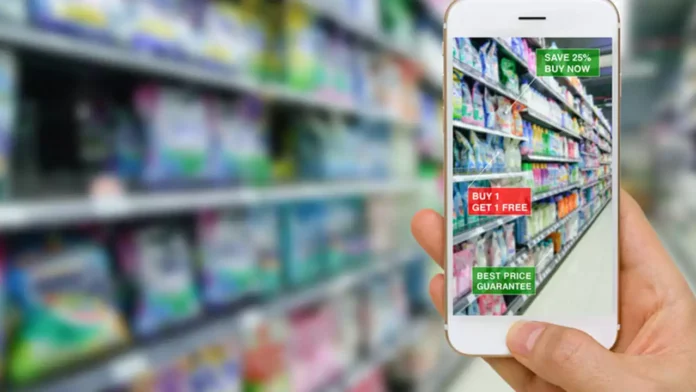FMCG companies are now introducing digital or e-commerce-centric product packages at more affordable prices, aiming at the mass market with tailored offerings. This marks a shift from their earlier focus on premium or niche segments for such releases.
Executives from various companies recognize a significant shift towards prioritizing mass-market digital products, driven by the booming e-commerce sector, which has consistently shown rapid growth over several quarters. The aim is to boost sales volume and reduce the operational costs associated with online platforms.
Parle Products, known for its biscuits, is introducing its online packages priced between INR 70-90, down from the previous range of INR 120 and above, or by offering bundled smaller packs. Emami has recently entered the mainstream toothpaste market via digital platforms. Dabur is also adopting a more affordable pricing strategy for its direct-to-consumer (D2C) offerings in segments like baby care and food, contrasting with competitors focusing on premium products. Hindustan Unilever (HUL), India’s largest FMCG manufacturer, has also hinted at a similar transition.
Continue Exploring: FMCG demand in India faces continued decline, Kantar predicts further downturn
“This was bound to happen since volumes for digital first or digital products will only come when prices come down or there are new products targeting mass segment,” said Parle Products senior category head Mayank Shah. “The cost of servicing ecommerce orders will reduce when order ticket size improves. Companies are trying to grow the basket.”
Last month, Rohit Jawa, the managing director of HUL, informed analysts that the company is refining its strategy for online-only brands, currently concentrated in the premium beauty care sector. HUL aims to expand this model into food, other product categories, and also into the mass market segment.
“And that is what’s going to be also a very important outcome of our experience in the last three years, apart from the fact that we have now two beautiful brands, maybe a third one that would definitely go mass,” said Jawa.
According to industry executives, the expenses associated with fulfilling online orders are considerably higher compared to those of modern or general trade. Delivery costs typically range from INR 50-60 per order for two-wheeler deliveries, but can escalate to INR 160-180 per order for four-wheeler deliveries. These elevated costs render the operation financially unsustainable unless there is a significant total bill value achieved through a combination of premium, mid-segment, and mass products.
The contribution of e-commerce to total sales has seen a significant increase for most FMCG companies, now reaching 12-14%, inclusive of any D2C segment. With the addition of modern trade, this figure has surged past 20%, with companies such as ITC reaching as high as 31%. In its latest investor presentation, ITC emphasized the development of channel-specific assortments in response to the strong growth in alternative channels.
Certain companies have devised strategies to gradually introduce their digital-exclusive or digital-first products into mainstream channels like general trade to expand their reach. For example, Marico has initiated this process with its Beardo brand and intends to extend it to other products. Similarly, Emami plans to introduce its toothpaste to kiranas as part of this approach.
According to Mohit Malhotra, CEO of Dabur, the competition from high-end urban markets and Direct-to-Consumer (D2C) brands hasn’t affected Dabur significantly. This is because Dabur primarily operates within the mass market price range, whereas these competing brands typically have significantly higher price points.
“And because of which they can circumvent or make profits, despite freight costs being very high in D2C. The real battle will be fought with them when they become offline and every startup would want to go offline because that’s where the muscle is,” he said.
Continue Exploring: Consumer goods giants scale back B2B sales to ensure fair play for distributors





